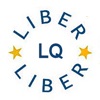On a Quest for Cultural Change - Surveying Research Data Management Practices at Delft University of Technology
DOI:
https://doi.org/10.18352/lq.10287Keywords:
University, Library, Data Management Plans, FAIR principles, Data Management, Research SupportAbstract
The Data Stewardship project is a new initiative from the Delft University of Technology (TU Delft) in the Netherlands. Its aim is to create mature working practices and policies regarding research data management across all TU Delft faculties. The novelty of this project relies on having a dedicated person, the so-called ‘Data Steward’, embedded in each faculty to approach research data management from a more discipline-specific perspective. It is within this framework that a research data management survey was carried out at the faculties that had a Data Steward in place by July 2018. The goal was to get an overview of the general data management practices, and use its results as a benchmark for the project. The total response rate was 11 to 37% depending on the faculty. Overall, the results show similar trends in all faculties, and indicate lack of awareness regarding different data management topics such as automatic data backups, data ownership, relevance of data management plans, awareness of FAIR data principles and usage of research data repositories. The results also show great interest towards data management, as more than ~80% of the respondents in each faculty claimed to be interested in data management training and wished to see the summary of survey results. Thus, the survey helped identified the topics the Data Stewardship project is currently focusing on, by carrying out awareness campaigns and providing training at both university and faculty levels.Downloads
Download data is not yet available.

Downloads
Published
2019-08-05
Issue
Section
Case studies
How to Cite
On a Quest for Cultural Change - Surveying Research Data Management Practices at Delft University of Technology. (2019). LIBER Quarterly: The Journal of the Association of European Research Libraries, 29(1), 1-27. https://doi.org/10.18352/lq.10287






